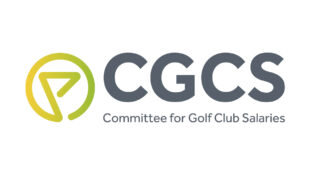GCMA chief executive Tom Brooke and BIGGA CEO Jim Croxton outlined the crucial part golf clubs need to play in managing staff wellbeing in a ChairNetwork webinar…
Golf club boards must appoint points of contact for human resources, personnel, and wellbeing, GCMA chief executive Tom Brooke has stressed.
Speaking during a ChairNetwork webinar with BIGGA chief executive Jim Croxton, and discussing the ongoing staffing issues in the golf industry, he stressed the “absolutely critical” role as clubs moved down a modern governance structure.
“I was at one of our regional meetings recently and I just asked the question to the room, ‘How many of you have someone within your board or committee who is responsible for workforce employee wellbeing or is the contact on HR and personnel?’” Tom said.
“I think two people raised their hands in a room of probably 40 or 50. That’s a role I think is absolutely critical and as we look at modern governance – with skills-based boards and committees – there has to be a role within their responsibility as a point of contact for HR, personnel, and employee wellbeing.
“You would in a company: you have an HR team, you have an HR manager. We need to have those individuals in post at golf clubs as well.
“Then we just need to ensure collectively that there is a recognition of the importance of well supported individuals in post throughout golf clubs, being paid the right salary, being looked after, and being recognised for the jobs that they do.”
With the industry going through an alarming recruitment and retention problem, particularly in greenkeeping and hospitality, Jim added: “A lot of clubs do not have communications structures in place with their team and I’m really heartened to hear what Tom is saying. I like this idea of the club taking responsibility at senior level for wellbeing of staff.
“It is something very close to my heart because I think you have to open that conversation with people – for people to open up about it.
“I think that responsible employers the world over are opening up those conversations but golf clubs, particularly private members’ clubs, are uniquely run.
“While there is a very good governance handbook put together by the game in the last few years, it isn’t on every shelf in every golf club, and it isn’t part of an induction process for every club director.
“We need to try and really bang that drum and get golf clubs thinking about that, but I think Tom is absolutely right. This has got to be led by a board.
“It’s got to be led by an owner. It’s got to become a responsibility of the general manager – not wanting to put even more pressure on Tom’s people, but they are obviously the conduit, whether it’s by using an external HR company or wellbeing company or whether it’s someone on the board taking responsibility for that.”
Webinar co-host, and ChairNetwork co-founder, Eddie Bullock said boards would be required to appoint a welfare and safety lead director to respond to any heightened concerns.
“Where does the general manager go to when they’ve got a problem? Where does the course manager go to?” he said.
“There isn’t anybody and we – the golf clubs – need to take on the responsibility. It’s not in our nature, being true Brits. We just take on the burden. We take on the situation – nothing’s wrong.
“Sometimes all you need is the general manager, or the course manager with all that responsibility, to just be able to open up and have somebody to listen to – or for somebody to listen to them. That’s really going to be very key. I’m just really very supportive of that and we need to get a little bit more support from other governing bodies as well as anything else.”
To watch the full webinar, click here.
Do you subscribe to the GCMA’s weekly E-newsletter? Make sure you’re not missing out on the latest in the world of golf club management. Click here to join in.



